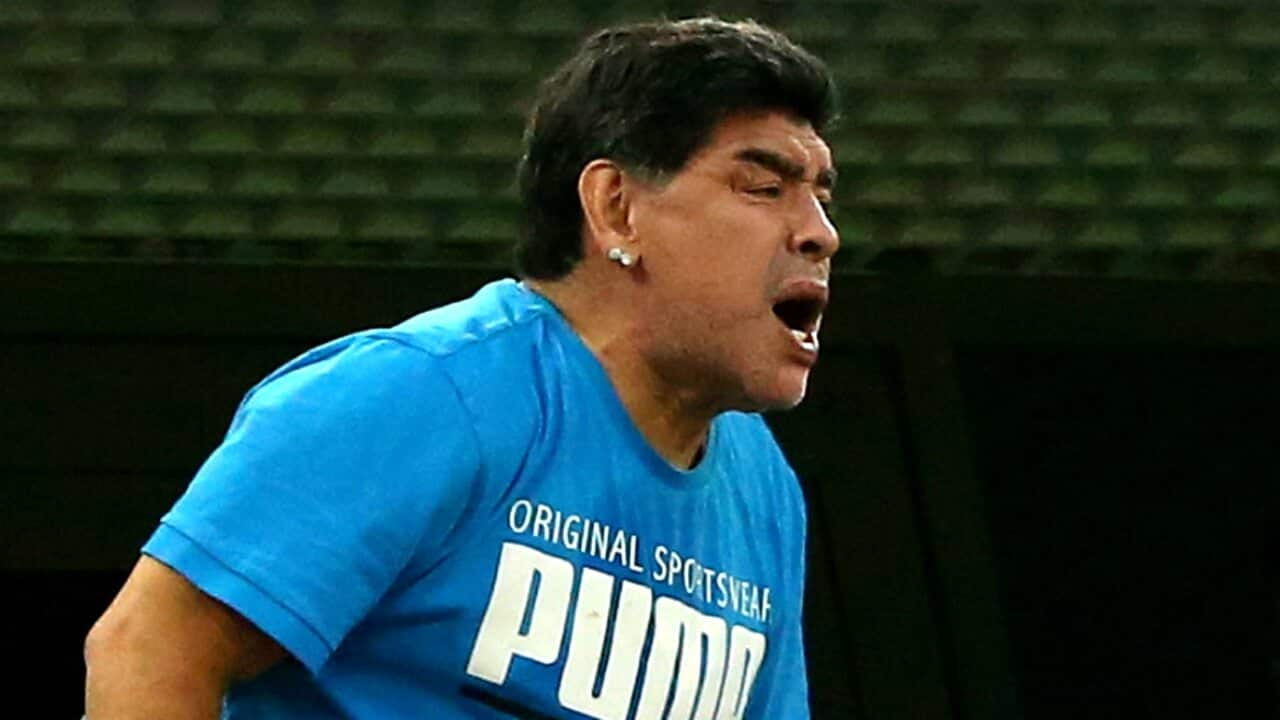Millions of football fans have converged on the arena that is affectionately known by its original name, the Sydney Football Stadium.
It has hosted FIFA World Cup qualifiers, A-League grand finals, Sydney derbies and even a World Youth Cup final.
It also was the stage for some virtuoso individual performances.
Who can ever forget the rocket Charlie Yankos unleashed against Argentina in the 1988 Gold Cup?
Or Mark Schwarzer's shootout heroics against Canada in a World Cup playoff in 1993?
Or Mark Bresciano's spectacular volley against Bahrain in an Asian Cup qualifier in 2006?
Or Alessandro Del Piero's four beauties for Sydney FC against Wellington Phoenix in 2013?
Big stars like Romario, Jose Luis Chilavert, Franco Baresi, Gary Lineker, Diego Maradona, Gabriel Batistuta, Jean-Pierre Papin, Dwight Yorke, Juninho, Shinji Ono and Hakan Sukur also thrilled the more discerning fans at Moore Park with their special skills.
The good ol’ SFS has had its critics but nevertheless a degree of loss and sadness will accompany the moment when it closes its doors for good after crooner Michael Buble gives a one-off concert on Friday night.
Work on the ground’s demolition and subsequent redevelopment will commence in January.
The ground has seen several memorable matches over the years but the biggest moment in its history no doubt came on a balmy evening on November 17 in 1993 when Australia faced Argentina in the first leg of a playoff for the final spot at the 1994 World Cup in the United States.
It was a match that ticked all the boxes. It captivated the world’s attention and drew a massive global television audience.
Firstly, because two-time world champions Argentina were in serious trouble after crashing to a humiliating 5-0 loss to Colombia in Buenos Aires that forced them into a do-or-die decider with Eddie Thomson’s Socceroos.
Secondly, because the tie signalled superstar Maradona's return to the game after a 15-month suspension for cocaine use.
The eagerly awaited tie that captured the imagination of Australia's media was engulfed in controversy before it even kicked off.
Australia’s decision to play the first match at home drew strong criticism in the media because it is generally considered that playing a return game at home carries a slight advantage.
Cash-strapped Australian Soccer Federation were accused of opting to play at home first so as to guarantee a full house and eliminate the risk of a blowout score in an away first leg that could have reduced the return to a 'dead rubber'.
But the late Thomson was adamant that his intrepid Socceroos' best chance of surprising their celebrated opponents with a win was by playing first on familiar territory.
Thomson’s view is corroborated by Paul Wade, Australia's captain on the day.
“That was exactly Eddie’s approach all along,” Wade says.
“He was banking on a positive result to take to Buenos Aires. Can you imagine the immense pressure the Argentines would have been under if they had to overturn a defeat? Mind you, we still scared the living daylights out of them.”
Thomson’s view would have been seen as a compelling reason to go with the contentious option of playing at home first.
It is all part of our history now how the Socceroos and Albiceleste played out a thrilling 1-1 draw at a 'football friendly' stadium that was bursting at the seams.
Maradona, who told me at the team hotel in Coogee a few days before the match that quality attackers were not given adequate protection by referees, won the ball from Milan Ivanovic on the right and made enough space for himself with some deft footwork to lay on a cross for striker Abel Balbo to beat Mark Bosnich with a sumptuous header to the near post.
Australia replied with a slick team goal just before half-time. Playmaker Ned Zelic floated a pass into space for overlapping full-back Tony Vidmar who promptly volleyed low for his brother Aurelio to get in front of two defenders and slot home past the outstretched legs of goalkeeper Sergio Goycoechea.
The return at the historic Monumental was always going to be difficult for the Australians and it was made even harder when just before the hour mark striker Gabriel Batistuta hit a speculative ball from an impossible angle that bounced off Alex Tobin’s shin and arched its way into the net past the helpless Robert Zabica.
Australia battled bravely and were eventually beaten by a better and more experienced side … but who knows what could have happened had they taken a couple of half chances that fell their way late in the game?
Maradona went on to play in his fourth World Cup but his image was irrevocably tarnished when he sensationally tested positive to ephedrine after a match with Nigeria and was kicked out of the competition in America. He would never play again for his country.
Australian fans were just grateful that Maradona had played his part in a momentous Sydney occasion that, albeit briefly, put our football on the world map.
It was an event that was etched in the chequered 30-year history of the Sydney Football Stadium.











